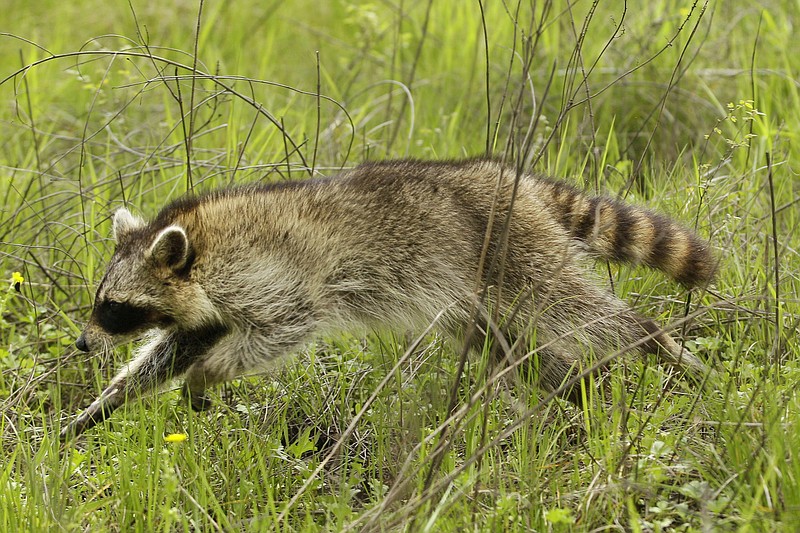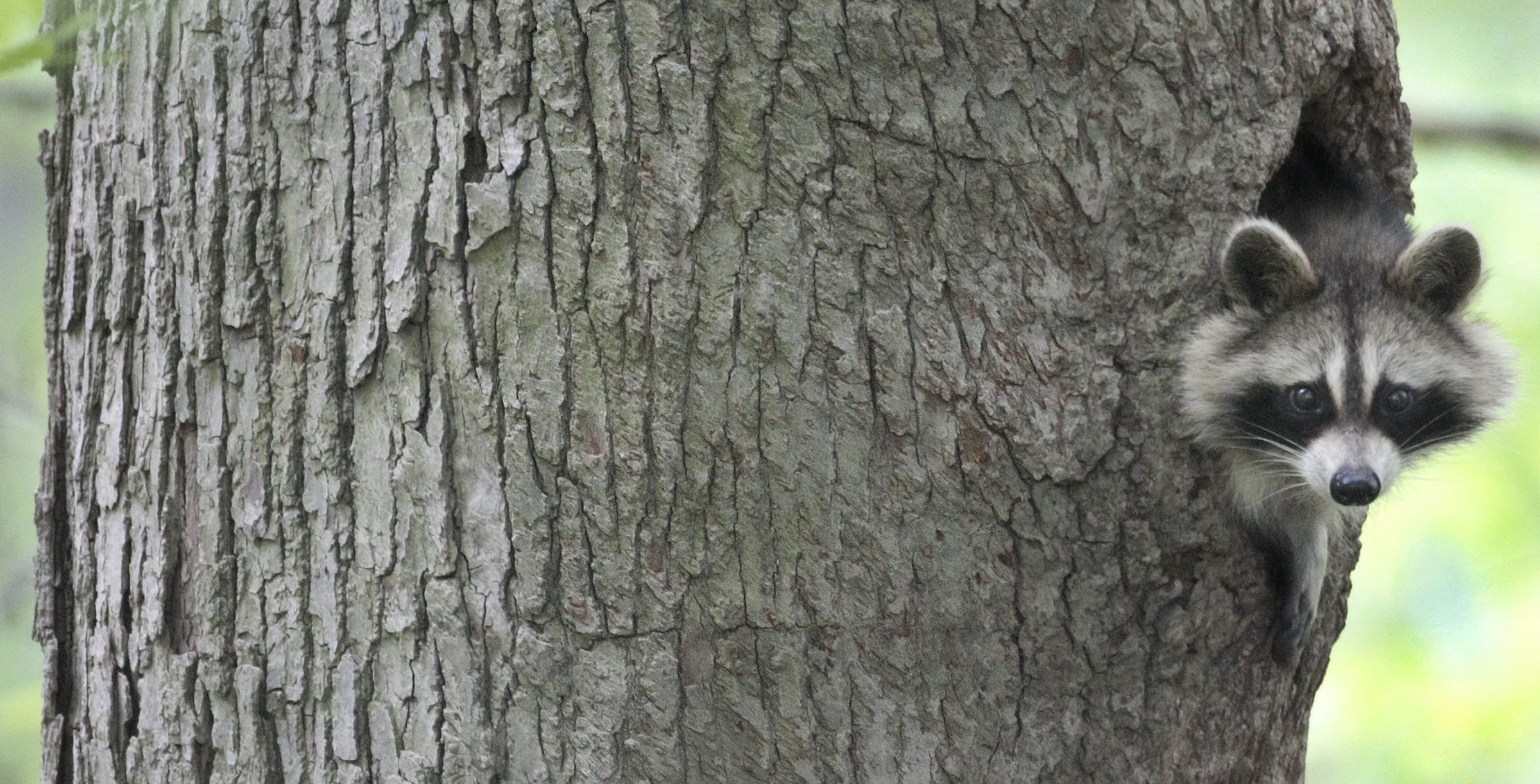The guy on the phone was pretty excited.
"I can't believe this!" he shouted into my bad ear, which is only slightly worse than the other one.
"These raccoons have taken over my backyard! I can't keep them out of my bird feeders, they won't let my cats around their food bowls, and one of them comes and scratches on the back door when all the food is gone! They even opened the latch on the gate to get onto my deck!"
I managed to get in a few sympathetic (feigned) words before he started again.
"The raccoons are almost as bad as when the bear comes here!" he whined. "A bear comes around sometimes and gets into the food that the raccoons have scattered, and he really tears up things - my bird feeders, garbage cans, the bear even destroyed my barbecue grill!
"Can't you do something about this? Aren't you the game warden?"
I tried to explain that I was retired and offered to give him phone numbers to those who could help him, but he seemed indignant that I would have the audacity to retire, so we finally parted ways.
This is a common complaint to department of natural resources agencies around the country. Raccoons and bears are now found in record numbers over much of the map. If you have any woodland near where you live, you are very likely to be visited by a bear or his little brother, the raccoon.
These animals are found over much of North America, as well as in parts of Europe and Japan, and raccoons have actually experienced a population explosion in recent history. Early settlers in the southeastern United States did not report anything about raccoons, which is amazing to me because most towns in the region are now up to their belt buckles in them. Raccoons greatly expanded their range in North America in the 20th century, though, and some biologists think this is because of a lack of predators, the expansion of agriculture and, in some cases, deliberate introduction by man.
In the past, raccoons were classified within the genus that include bears, Ursus (where I think they should be), but later they were given their own genus, Procyon, which has to do more with dogs than bears. Oh well - taxonomists, like other scientists, don't always get it right.
Raccoons have the reputation of being very intelligent, and zoologists have conducted studies to measure their capabilities. In one series of tests, raccoons were able to open a series of complex locks and showed the ability to remember this for years. One reason raccoons can accomplish such feats is because they have very flexible and dexterous front paws, almost humanlike but lacking an opposable thumb.
If raccoons had thumbs, nothing would be safe around your house. You would come home, and they would be on your couch watching TV, using the remote and eating Cheetos.
One of the things raccoons are known for is the strange trait of seeming to "wash" things they grab in their paws before eating. This behavior is known as dousing and seems to be particular to the raccoon family. Studies in raccoon world have determined that more than two-thirds of the part of the raccoon's brain dedicated to sensory perception is specialized for tactile impulses - the sense of touch.
So when a raccoon grabs an object and goes over it with his paws, he is "looking" at it to determine what it is and if he is going to eat it. Water softens the hard layer of skin on the front paws, and some scientists think this makes the object easier for the raccoon to feel. (Raccoons are not nearly as hygienic as you thought they were in all those Disney movies.)
The raccoon has been a popular game animal and furbearer since before Columbus made note of him in the New World. The fur has been used to make warm coats from the first Native Americans to the modern fur trade. Davy Crockett forever immortalized the wearing of the coonskin hat, and what boy did not have one in the 1950's? (I did.)
Pursuing the ring-tailed bandit with dogs has been a popular sport with hunters since colonial times and has given us the inception of particular breeds of dogs for this type of hunting. The black-and-tan coonhound may be the best known breed for treeing raccoons, but this also includes blueticks, treeing walkers, plotts, redticks and redbone hounds.
Raccoons are nocturnal, meaning they are most active at night, so almost all hunting for them is done in the dark, which brings its own special set of attributes to hunting for raccoons. Walking around in the dark while following a couple wide-ranging coonhounds can lead to all sorts of adventures, usually dealing with getting lost. (Believe me, I know.)
With raccoon populations what they are these days, they can be a major pest for humans. The best you can do is keep all food sources secured: bird food, cat food, dog food, garbage cans, anything they can eat - and they will eat almost anything. If this does not work, your next option is probably to do some live trapping (they like grapes and peanut butter, by the way), then give the raccoons you catch a nice ride in the country and release them. (Check your local game laws first.)
If you have trouble with raccoons at your house, give me call, and I will try to help.
Just don't get mad if I mention being retired.
"The Trail Less Traveled" is written by Larry Case, who lives in Fayette County, W.Va. You can write to him at larryocase3@gmail.com.


